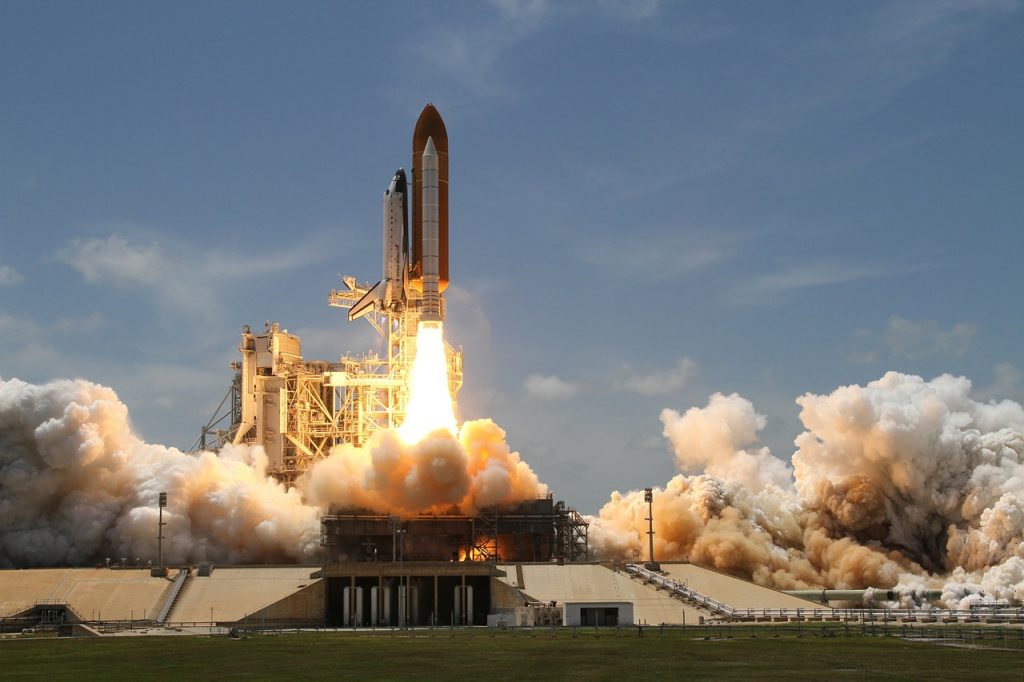SpaceX Launch Failed Before It Even Had The Chance To Take Off, Here’s Why
The countdown to SpaceX's first scheduled test flight of Starship was cut short due to a frozen valve in the spacecraft's super-heavy booster caused by the rocket’s methane and oxidizer oxygen being chilled at extremely low temperatures.

The countdown to SpaceX’s first scheduled test flight of Starship was cut short due to a frozen valve in the spacecraft’s super-heavy booster, according to NPR. The rocket is designed to carry humans to the Moon, Mars, and beyond, but, unfortunately, it couldn’t even complete its first test run. The Starship’s failure to launch sets SpaceX CEO Elon Musk back a few steps in the tech billionaire’s hopes to one day make humanity a multi-planetary species.
The extremely heavy booster where the problem arose is home to 33 engines—way more engines than any other rocket has ever used. The rocket is also 400 feet tall and runs on methane, an unorthodox choice, but one that engineers thought would work for SpaceX. The reason the space exploration company chose to use methane instead of hydrogen for fuel (which most rockets choose because it’s lighter and more efficient) is because methane is cheaper and easier to handle.
However, the choice to go with the easier and cheaper option proved to be SpaceX’s downfall. The rocket’s methane and oxidizer oxygen had to be chilled at extremely low temperatures, which experts believe is what caused the frozen valve.
However, Musk is not one to give up. While SpaceX says that their engineers need at least a few days to plan, they will be ready for the next launch later in the week. In a tweet commenting on the event, the space exploration company said that they do not consider this launch a failure as “success is measured by how much we can learn.” The team continued to run the test as usual, despite the frozen valve, and just considered the launch to be a dress rehearsal and stopped before igniting the engines.
Now is a very important time for SpaceX and having a failed rocket launch could be detrimental to the company. The rocket and spacecraft manufacturing company is currently trying to raise more capital for their two biggest projects: Starship and Starlink, the latter of which refers to Musk’s satellite constellation that delivers internet to Earth. If the Starship project ends up a failure, that could mean the end of funding for SpaceX’s biggest projects.
On the other hand, the success of Starship could mean big things for SpaceX. The colossal rocket could be used to launch massive numbers of Starlink satellites, allowing for the company to grow at a massive pace. Additionally, SpaceX is in league with NASA to build a version of Starship that will launch to the Moon, however, that isn’t expected to happen for several years.
If SpaceX succeeds in creating an interplanetary rocket like Starship is supposed to be, it could mean big things for the advancement of science as well. Musk claims that his interest in building rockets is to save humanity as the Sun will one day “expand and destory all life.” Part of Starship’s mission is to pave the way for the people of Earth to become an interplanetary species.
It seems as though this launch’s little setback has not phased the engineers at SpaceX at all. Blowing up rockets is a common practice at the company and one that has proven to gain positive results for the team in the past.






